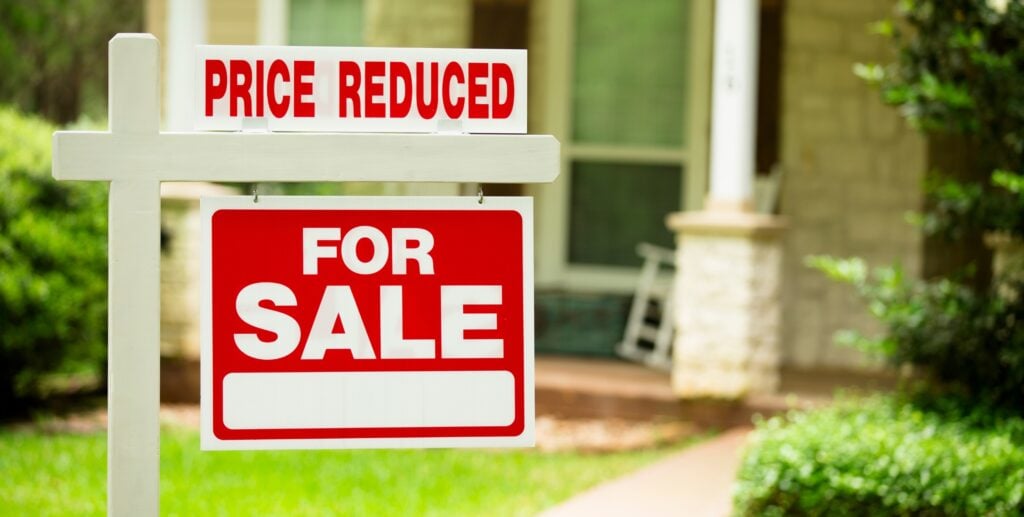Growing Risk: Homeowners Face Potential Losses in a Volatile Market
In recent years, the global housing market has experienced unprecedented changes, driven by a complex interplay of economic factors, technological advancements, and shifting consumer preferences. As homeowners navigate this increasingly volatile landscape, they must grapple with a new reality: the potential for significant financial losses. This growing risk is prompting concerns among economists, policymakers, and homeowners alike, raising critical questions about the stability of housing markets worldwide.
Economic Uncertainty and Market Volatility
The ongoing economic uncertainty, exacerbated by geopolitical tensions, inflationary pressures, and fluctuating interest rates, has created a climate of volatility in which housing markets struggle to find equilibrium. In many regions, rapid appreciation in home prices has given way to sudden declines, reflecting broader economic trends. While some real estate markets continue to thrive, others face the prospect of significant corrections as the imbalances between supply and demand become more pronounced.
The COVID-19 pandemic, initially a catalyst for skyrocketing home values due to low interest rates and changes in work-from-home policies, now casts a long shadow over future market projections. As central banks around the world take decisive measures to curb inflation, interest rates are expected to rise, prompting concerns about affordability and potentially dampening demand. Homeowners who bought at the peak of the market may find themselves facing the harsh reality of depreciating property values.
Impact of Technological Disruption
The rapid pace of technological advancement has also contributed to market volatility. Innovations in property technology and digital platforms have transformed the way homes are bought and sold, introducing new efficiencies but also new risks. As more transactions move online, concerns about cybersecurity and data privacy have grown, highlighting vulnerabilities in an increasingly digital marketplace.
Moreover, shifts in consumer behavior and demographics are reshaping the housing landscape. The rise of remote work and a growing emphasis on sustainability have altered buying preferences, with potential long-term implications for housing demand. Younger generations, burdened by student debt and grappling with affordability issues, may delay or forgo homeownership altogether, further impacting market dynamics.
The Role of Policy and Regulation
Governments and regulatory bodies play a crucial role in stabilizing housing markets, but finding the right balance between intervention and market-driven solutions is challenging. Policies aimed at increasing housing supply, such as zoning reforms and incentives for new construction, must be carefully designed to avoid exacerbating volatility. Additionally, financial regulations need to adapt to new realities, ensuring that lending practices remain sound and sustainable.
In regions where housing affordability is a pressing issue, policymakers face pressure to address the needs of both first-time buyers and existing homeowners. Striking a balance between protecting consumers and encouraging investment in the housing sector is essential for fostering long-term stability.
Preparing for Uncertainty
For homeowners navigating this volatile market, preparation and adaptability are key. Financial literacy and planning are crucial tools in mitigating risk, allowing homeowners to make informed decisions regarding mortgages, refinancing, and investment strategies. As economic conditions fluctuate, maintaining a diversified financial portfolio and building equity can provide a buffer against potential losses.
In uncertain times, knowledge is power. Homeowners are encouraged to stay informed about market trends and to seek advice from financial and real estate professionals. Understanding the broader economic context and how it impacts local housing markets can empower homeowners to navigate challenges and capitalize on emerging opportunities.
Looking Ahead
The path forward for global housing markets remains uncertain, as economic and technological forces continue to shape the landscape. While risks are inherent in any market, proactive measures, informed decision-making, and thoughtful policy interventions can help mitigate potential losses for homeowners.
In a volatile market, resilience and adaptability will be crucial for homeowners seeking to protect their investments and build a stable future. As stakeholders work collaboratively to address these challenges, the goal remains to create robust, sustainable housing markets that benefit individuals and communities alike.

